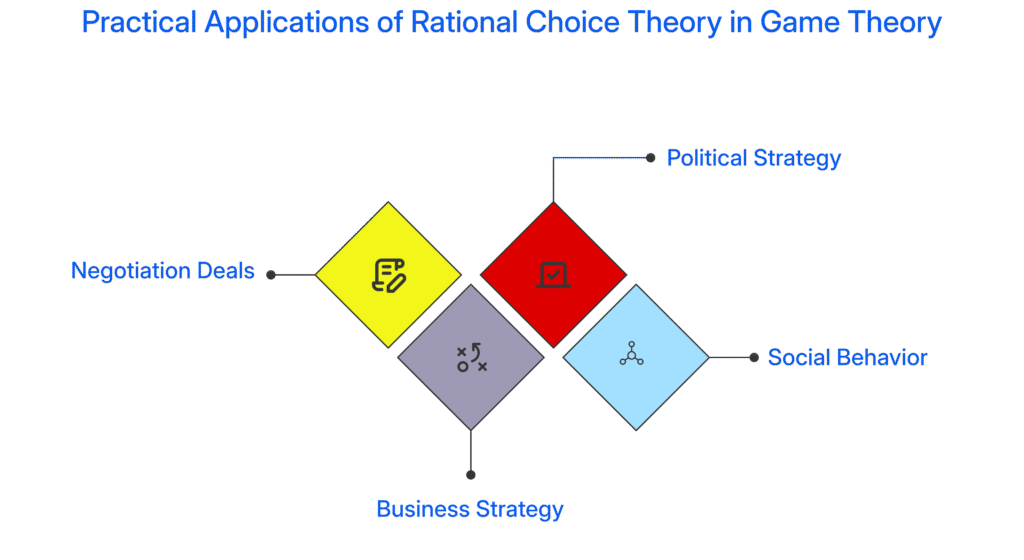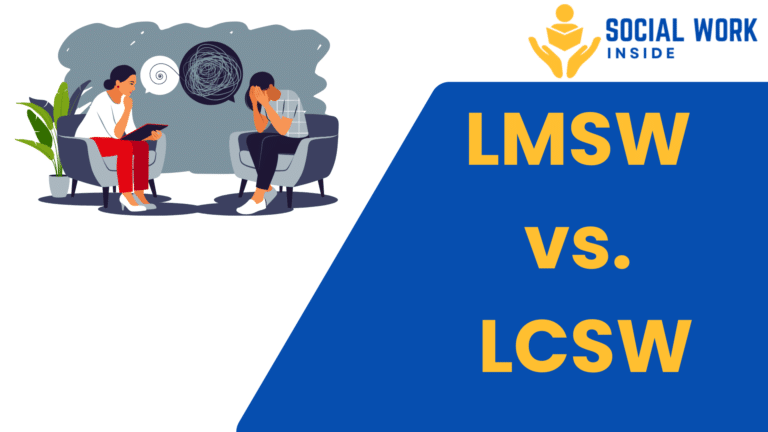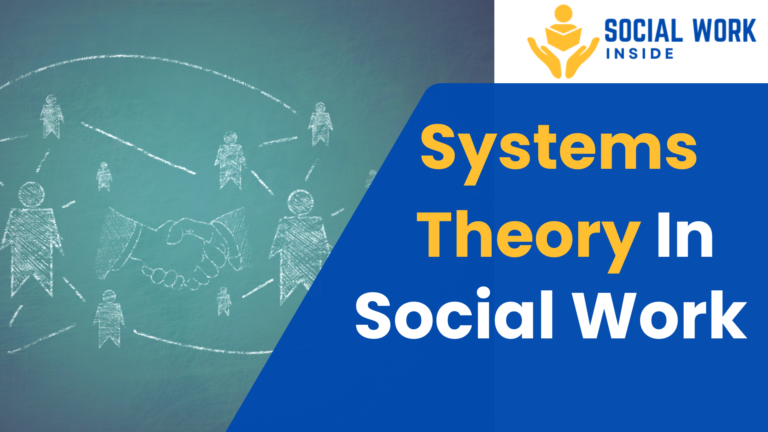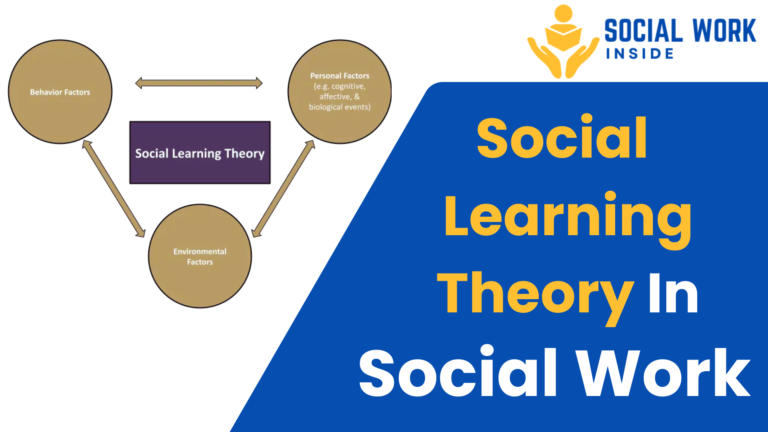Rational Choice & Game Theory Explained: Key Principles

Rational choice theory is a critical concept in economics and game theory, used to explain how individuals make decisions to maximize their benefits. Whether it’s choosing the best strategy in a competitive game or making a financial decision, rational choice theory helps us understand human behavior in a structured way. In this guide, we’ll explore rational choice theory’s application in game theory, how it relates to decision theory, and much more.
What is Rational Choice Theory in Game Theory?
Rational choice theory assumes that people act in a way that maximizes their utility based on available information. In game theory, this means players choose strategies that provide the most beneficial outcome given the choices of others.
Example:
Imagine you’re playing a game of chess. Your moves are based on maximizing your advantage while considering your opponent’s potential moves. Rational choice theory helps predict how each player will behave, aiming for a win.
Key Concepts in Game Theory: Nash Equilibrium and Rational Strategy
A fundamental concept of game theory is the Nash equilibrium, a situation where no player can improve their outcome by changing their strategy, given the strategies of others. This reflects rational decision-making.
| Concept | Explanation | Real-World Example |
|---|---|---|
| Nash Equilibrium | No player benefits from changing their strategy | Two companies in a market choosing similar prices |
| Dominant Strategy | The best strategy no matter what others do | Deciding whether to cooperate or compete in business |
Rational Choice Theory vs Decision Theory: What’s the Difference?
While both theories help explain decision-making, decision theory is more focused on individual choices based on risk and uncertainty. In contrast, game theory (which uses rational choice theory) deals with strategic interactions between multiple parties.
| Aspect | Decision Theory | Game Theory |
|---|---|---|
| Focus | Individual decision-making | Interaction between multiple decision-makers |
| Key Concept | Risk assessment and utility maximization | Strategy and equilibrium in competitive situations |
Practical Applications of Rational Choice Theory in Game Theory

From business negotiations to political strategy, rational choice theory is used to model decisions in competitive environments. Game theory helps predict outcomes in various scenarios, including:
- Negotiations: Striking deals that benefit both parties.
- Business Strategy: Pricing products to maximize market share.
- Politics: Political parties and candidates strategizing to win elections.
- Social Behavior: Predicting behavior in social dilemmas like the prisoner’s dilemma.
How Rational Choice Theory Impacts Real-World Decision Making
Rational choice theory helps explain not only decisions in game theory but also in real-world scenarios like:
- Economic Decisions: How businesses and individuals make purchasing or investing decisions.
- Legal System: Predicting outcomes in legal disputes based on rational strategies.
- Healthcare: Making rational decisions about treatment options based on cost and benefits.
Rational Choice Theory in Economics: A Deeper Look
In economics, rational choice theory is used to model consumer behavior. Consumers are assumed to make decisions that maximize their utility, given their budget constraints. This is closely linked to microeconomics, where the theory helps explain market behavior and demand and supply curves.
Example:
A person chooses between two different job offers based on salary, benefits, and work-life balance. By evaluating all options, they make the decision that provides the highest utility.
Advantages and Limitations of Rational Choice Theory
While rational choice theory is useful in many situations, it has its limitations:
- Over-simplification: It assumes that individuals always make rational decisions, which is not always true in the real world.
- Behavioral Factors: It doesn’t account for emotional or psychological factors that can influence decisions.
Example:
In real life, a person may buy a luxury item they don’t need, even if it doesn’t maximize their long-term utility. This is where behavioral economics comes in, which incorporates psychological factors into economic decision-making.
Rational choice theory plays a key role in game theory, offering insights into how individuals and groups make decisions. Whether in economics, politics, or everyday life, understanding these theories helps us make smarter, more informed decisions.
Call to Action: Ready to apply rational choice theory in your business or personal decisions? Explore more resources on game theory and decision-making strategies.
FAQs
What is the main idea behind rational choice theory?
The main idea of rational choice theory is that individuals make decisions by logically evaluating available choices and selecting the one that maximizes their benefit or utility.
How does rational choice theory apply to game theory?
In game theory, rational choice theory suggests that players choose the strategy that will provide the most beneficial outcome, considering the potential strategies of other players involved in the game.
Can rational choice theory be applied to real-life scenarios?
Yes! Rational choice theory is applied in many areas of life, including business, economics, politics, and social behavior. It helps predict how individuals and groups make decisions to maximize their benefits.
What is the Nash equilibrium in game theory?
The Nash equilibrium is a concept in game theory where no player can improve their outcome by changing their strategy, given the strategies of the other players. It’s the point where all players’ decisions are balanced.
What is the difference between decision theory and game theory?
Decision theory focuses on individual decision-making, often under uncertainty, while game theory looks at decision-making in situations where multiple parties or players are involved, each with their own strategies and goals.
Is rational choice theory always realistic?
While rational choice theory offers a logical framework for decision-making, it assumes that individuals always act rationally. In reality, emotions, social influences, and cognitive biases can sometimes lead people to make decisions that don’t maximize their utility.
How does rational choice theory relate to behavioral economics?
Behavioral economics builds on rational choice theory but takes into account psychological factors like emotions and biases, which can cause individuals to make decisions that deviate from pure rationality.






